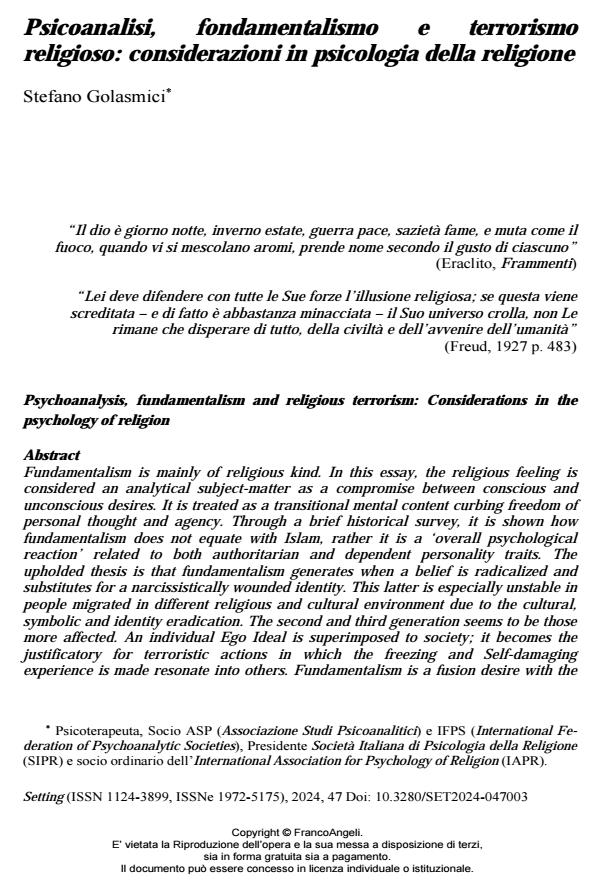Psychoanalysis, fundamentalism and religious terrorism: Considerations in the psychology of religion
Journal title SETTING
Author/s Stefano Golasmici
Publishing Year 2024 Issue 2024/47
Language Italian Pages 22 P. 19-40 File size 238 KB
DOI 10.3280/SET2024-047003
DOI is like a bar code for intellectual property: to have more infomation
click here
Below, you can see the article first page
If you want to buy this article in PDF format, you can do it, following the instructions to buy download credits

FrancoAngeli is member of Publishers International Linking Association, Inc (PILA), a not-for-profit association which run the CrossRef service enabling links to and from online scholarly content.
Fundamentalism is mainly of religious kind. In this essay, the religious feeling is considered an analytical subject-matter as a compromise between conscious and unconscious desires. It is treated as a transitional mental content curbing freedom of personal thought and agency. Through a brief historical survey, it is shown how fundamentalism does not equate with Islam, rather it is a ‘overall psychological reaction’ related to both authoritarian and dependent personality traits. The upholded thesis is that fundamentalism generates when a belief is radicalized and substitutes for a narcissistically wounded identity. This latter is especially unstable in people migrated in different religious and cultural environment due to the cultural, symbolic and identity eradication. The second and third generation seems to be those more affected. An individual Ego Ideal is superimposed to society; it becomes the justificatory for terroristic actions in which the freezing and Self-damaging experience is made resonate into others. Fundamentalism is a fusion desire with the supreme which the aim of healing the wounded identity; it is expressed through death-narcissism which, in turns, leads to the complete stillness. .
Keywords: fundamentalism, religion, illusion, terrorism, identity, life and death instinct, sense of belonging, radicalization, eradication, Ego Ideal, transgenerational, narcissistic wound
Stefano Golasmici, Psicoanalisi, fondamentalismo e terrorismo religioso: considerazioni in psicologia della religione in "SETTING" 47/2024, pp 19-40, DOI: 10.3280/SET2024-047003